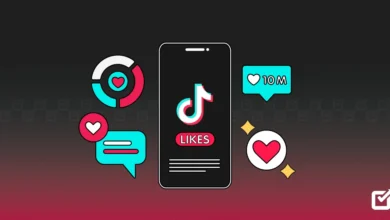Tech
Yphone: Best review Step by Step Guide

yphone: We’re an Android phone manufacturer. We make phones for people to use.
We’ve been making them for years, but this is our first time trying to sell them.
We need your help.
So, we need you to help us understand what people think they want and then translate the value of yphone into their terms.
Here are a few examples:
There are a few products for mobile phones with the word “phone” in their name — like yphone, which is not a phone at all. They also have the word “phone” in their name, like yphone-plus.
It is true that there is some overlap between the two words, but it is not an exact match.
The reason for this is because there are many phones that don’t have the word “phone” in their name, but they do have other things in common: they are both Android-based devices (and designed to be) and they both use SIM cards (and are compatible with most of them). Those things aren’t enough to make them products of a single category.
With this definition — which I think makes a lot of sense — you can see why your product might not need to be any kind of phone or phone-like device at all: it could simply be your software and services; or it could be as alien as an open-source desktop/laptop operating system; or it could be something entirely new and different from what we’re already used to (like a tablet computer).

3. yphone and the legal system
The case of yphone is a good example of the need for proactive legal counsel as well as a great illustration of the importance of planning, preparation and a well thought-out strategy.
The details are irrelevant: that’s the whole point. What matters is that yphone was accused of overheating its hardware by selling it to consumers on an open-source basis (and then, again, selling it under license to other parties). The court found that the practice violated the law. Yphone appealed, lost and appealed again in the court of appeals.
Just to recap: 1) yphone was caught doing something wrong, 2) yphone was caught doing it again, 3) yphone has been found guilty and 4) all their attempts at appeal have been rejected.
But there’s much more than just this high drama in this story. Here are some additional points:
1) There is an important distinction between being “taught” or “instructed” by others and being “instructed” by yourself (the latter being what we mean here). To be “taught” or “instructed” is not to be taught or instructed – it only means that you think about your actions as if you had learned them from someone else (or perhaps even better – someone who had learned them from someone else). For instance, if you go out drinking with friends too often and end up becoming reckless one night, you should not be told that you must moderate your behavior for fear that you will never find another one like yourself (because you probably wouldn’t want to drink like that again anyway). Rather than being instructed by others how not to behave differently — something we would consider no big deal — instead take control of your own decisions about how frequently you drink; when you do drink; what kind of alcohol you drink etc.; then decide whether it makes sense to continue drinking with others; if so, who; and so forth – until such time as your behavior becomes more consistent with yours rather than merely similar. This is different than teaching yourself something – which most business schools teach their students by using a very different approach: they do research on what really works in business and then teach its lessons to their students through case studies and seminar presentations – which are themselves also different from instructing oneself.
2) By contrast, if someone tells us how not to behave differently — something which we would consider no

4. yphone laws in the united states
yphone is an open source phone with a unique device ID (dynamic IP address) built-in. It is open source, because it’s a phone that can be developed into a smartphone. It’s another example of how open source projects are useful for creating new technology.
The yphone project was started at NXP Semiconductors in 2005 by a few people who were frustrated with the poor development experience they were getting from the company. The software and hardware were both open source projects, but the company had been charging customers to access the source code and they refused to offer it (though they would sell you add-on modules). NXP even refused to provide support to yphone users because they didn’t hesitate to threaten them with lawsuits if they didn’t buy their proprietary software:
It seems like a strange way to run a business, but these companies have created entirely new business models on top of existing ones (by using open source software). This kind of thing does not happen very often, but when it does, it can be extremely valuable for developers who want to create new products and services:
5. ycalls in the united kingdom
Even if you’re already a fairly big player in the UK mobile phone business, ycalls is a great way to push that home. They have developed a quirky and innovative approach to the practice of “chatting” about what you need or want and then asking for it:
Ycalls is just one example of a growing trend in mobile phone marketing which is called “call signaling”. The basic idea here is that when you call someone on their mobile, they are sent to a website (which might be different depending on the country) and asked for an offer (often something like: “What do you need?”). Then they can either accept the offer or decline it.
The idea behind this is that people are more likely to buy if they feel they are offered something useful. As long as people can make sense of what you are offering them, they will feel like they are getting value out of it. There are lots of other variations on this theme, but let’s focus on ycalls for now.
They have developed quite a sophisticated system for recognizing exactly how much value there is in an offer and then setting off to do something useful with it:
So, in addition to the traditional methods of sending offers (which is still widely used), ycalls will soon be able to send offers based on direct interaction with the user: asking questions like: “Do you want some quality time with your little one? Do you need help getting back into shape? Do you want some advice on how to improve your finances? Do you want some information about how old your child is? Are these things important to you? Would you like me to ask my colleagues at work about them too?… etc. Is there anything else I should know before we chat further?… etc.?” And then letting users choose from among those offers which ones seem most important to them.

In addition, ycalls will be able to send suggestions based on social networks: content from Twitter, Facebook, Flickr and so forth will be detected as such by ycalls and sent along with other information from those networks automatically included with messages that should interest their users (like links where users can buy something). This will lead to many types of interactions between users contacting each other instantly by email or instant messaging instead of waiting for them all day long at work or school!
What makes this so interesting is that some might argue
6. Conclusion
The great thing about the earlier section is that it was focused on the end-to-end relationship between product and market. And there are many ways in which we can improve our relationship in order to get to more product-market fit. But for now, let’s focus on these five areas:
• Product Life Cycle: What do you think it takes for a product to be successful?
• Market Life Cycle: How do you think you stack up against your competitors?
• Customer Life Cycle: What are your customers saying?
• Customer Support: How much time do they spend with your product?
These five areas are interconnected, and it is important to keep them in mind as we consider each. They all have one thing in common: when we improve one, we must improve others. In this case, by improving the fit between product & market is helping us to improve other parts of our lives too. We may not realize this yet, but learning to look at our lives as a whole and see each part as open ended adds perspective — a way of working at improving our relationships with ourselves and with others.



